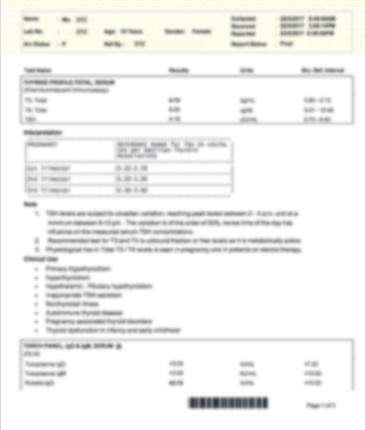Immunoglobin IgE Serum - C1176
Rs 840
- Why Get Tested?
To screen for an allergic disease; sometimes to screen for a parasitic infection - When To Get Tested?
When you have periodic or persistent skin, lung, or digestive symptoms that suggest allergies; when a healthcare practitioner suspects a parasitic infection - Sample Type:SERUM (SST or Plain)
- Fasting :NO
- Report Delivery:Next Day
- Components:1 Observations
Frequently Booked Test
Absolute Eosinophil Count
-
C1214
-
5-a-Dihydrotestosterone (5a DHT)
-
within 72 Hrs of Test Schdule
₹ 350.00
Absolute Eosinophil Count
-
C1214
-
5-a-Dihydrotestosterone (5a DHT)
-
within 72 Hrs of Test Schdule
₹ 350.00
Absolute Eosinophil Count
-
C1214
-
5-a-Dihydrotestosterone (5a DHT)
-
within 72 Hrs of Test Schdule
₹ 350.00
